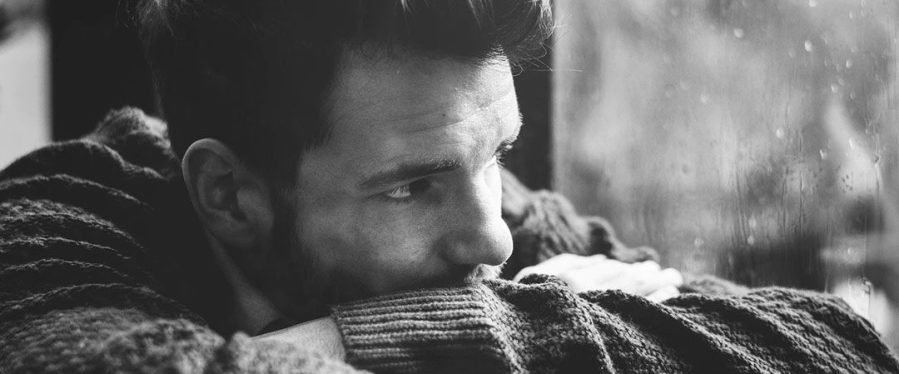Barbiturates Withdrawal & Treatment
- Home
- Barbiturates Withdrawal & Treatment
About barbiturate withdrawal
Barbiturates are not widely used today, but if you or a loved one is addicted to a barbiturate and have tried to stop, you know how unsettling the experience can be when withdrawal symptoms begin to appear. These symptoms are often enough to drive almost anyone to continue using the drug. That’s the nature of barbiturate dependence: someone who is physiologically dependent on a barbiturate needs to keep using the drug in order to feel okay. If they stop or suddenly and significantly reduce their intake, withdrawal symptoms inevitably appear.
As is sometimes thought to be the case with caffeine, substance dependence can be relatively harmless at times. Many people experience unpleasant withdrawal symptoms when they quit drinking coffee, but few consider caffeine addiction to be very concerning. Unfortunately, barbiturate dependence and withdrawal are dangerous and potentially life-threatening. Medical detox is required for a safe and effective barbiturate withdrawal experience.

Daylight Detox is a barbiturate withdrawal treatment center
Barbiturate addiction and withdrawal require professional medical assistance. Withdrawal symptoms can range in severity from mild to life-threatening. Medical detox should be undertaken in an accredited barbiturate withdrawal treatment center. With highly personalized and effective barbiturate detox programs, Daylight Recovery Center makes the withdrawal experience as safe and comfortable as possible.
Barbiturate withdrawal timeline and severity
The length and severity of withdrawal depend on several factors, including but not limited to:
The specific barbiturate used
How long the drug takes to leave the body
Length of time dependent on the drug
Frequency of use
Dosage
Most withdrawal symptoms usually subside after about two weeks, but some can persist. Depression, anxiety, and insomnia may last for months, and drug cravings can lead to relapse. Barbiturate withdrawal aftercare treatment is important for continued long-term success.
Barbiturate withdrawal timeline
Days 1–3:
Nausea and vomiting can occur, along with increased heart rate and insomnia. Agitation and restlessness are common. By the third day, symptoms may peak, and seizures or hallucinations are possible. Delirium is a more extreme potential symptom.Days 4–7:
Withdrawal symptoms typically begin to dissipate around day 5. Irritability, mood swings, insomnia, depression, anxiety, and drug cravings may persist. Continued medical detox is important during this period.After Day 7:
In some cases, most physical withdrawal symptoms are gone after day 7. However, withdrawal can last up to two weeks or longer, especially for long-acting barbiturates. Psychological symptoms such as depression and anxiety can persist for weeks or months. Continued aftercare treatment is crucial for long-term success.
Barbiturate withdrawal can be dangerous and even life-threatening. Medical supervision is essential to manage symptoms and ensure safety throughout the detox process.

The best barbiturate withdrawal treatment programs
Barbiturate withdrawal is a serious matter that requires around-the-clock medical supervision and care. Because of this, inpatient medical detox is recommended in most cases. Inpatient rehab facilities provide barbiturate detox programs, medical care, therapy, integrative treatments, and other services. Daylight Recovery Center utilizes proven treatment methods in the most efficient and effective way possible.
Barbiturate withdrawal medications
When treating barbiturate withdrawal, phenobarbital is sometimes used as a replacement for the addictive substance. Phenobarbital is a long-acting barbiturate that provides more stable blood levels than short-acting barbiturates and can be safely tapered under medical supervision. Symptom-specific medications are administered for nausea, depression, anxiety, and more. Additional medications can also be given in case of an emergency, highlighting the necessity of medical detox. Withdrawal should never be attempted at home.
Dangers of barbiturate withdrawal
Because the symptoms and severity of barbiturate withdrawal depend on several variables, it is not possible to predict who is at the greatest risk for severe complications. However, seizures, depression, and anxiety can lead to dangerous outcomes. Delirium is possible, and in some cases, circulatory failure and death can occur.
Get confidential help 24/7
If you or a loved one are suffering with drug abuse or alcohol addiction, reach out to Flyland Recovery Network for addiction help.
Treatment Type
- Alcohol Withdrawal & Treatment
- Ambien Withdrawal & Treatment
- Barbiturates Withdrawal & Treatment
- Benzodiazepine Withdrawal & Treatment
- Cocaine Withdrawal & Treatment
- Fentanyl Withdrawal & Treatment
- Heroin Withdrawal & Treatment
- Inhalant Withdrawal & Treatment
- Methamphetamine Addiction
- Opioid Withdrawal & Treatment
Get confidential help 24/7.
If you or a loved one are suffering with drug abuse or alcohol addiction, reach out to Flyland Recovery Network for addiction help.

Frequently Asked Questions
How long does barbiturate withdrawal last?
Barbiturates are a class of sedative drugs that differ in terms of how long their effects last. As a result, the duration of barbiturate withdrawal depends on the specific barbiturate used, the method of use, the severity of a person’s dependence, and other factors. Withdrawal can last anywhere from 4–7 days and up to 14 days or more.
What does barbiturate withdrawal feel like?
Barbiturate withdrawal is unpleasant and dangerous, with symptoms that may include agitation, nausea, vomiting, seizures, tremors, anxiety, aggression, and more. Heart failure and death are possible. Our caring team at Daylight Recovery Center makes the barbiturate withdrawal experience as safe and comfortable as possible.
What are the symptoms of barbiturate withdrawal?
Barbiturate withdrawal symptoms can include the following and more:
Abdominal cramps
Restlessness
Hallucinations
Delirium
Insomnia
Nausea
Vomiting
Anxiety
Seizures
Tremors
Circulatory failure and death are possible.
When does barbiturate withdrawal start?
Depending on the type of barbiturate used and the method of administration, withdrawal symptoms can begin to appear within 12 hours after the last dose. Withdrawal from longer-acting barbiturates usually starts within 1 or 2 days after the last dose.
What is withdrawal from barbiturates?
Barbiturate withdrawal is what someone who is dependent on a barbiturate experiences when they stop or significantly reduce their use. The combination of mental and physical effects can last up to 14 days or more. With a long list of symptoms that range in severity from mild to life-threatening, withdrawal from barbiturates is dangerous and should only be managed under medical supervision. If you are addicted to a barbiturate, receiving treatment at a barbiturate withdrawal treatment center can help you recover safely and discover a new future.
What helps barbiturate withdrawal?
Barbiturate withdrawal symptoms are most safely managed at an inpatient drug withdrawal treatment facility, where 24-hour care is provided. Staff can quickly address any issues or emergencies that may arise. Barbiturate withdrawal is dangerous and potentially life-threatening. In addition to severe symptoms like delirium, hallucinations, and seizures, circulatory failure and death are possible. Daylight Recovery Center can help you get through barbiturate withdrawal as safely and comfortably as possible. Our personalized recovery and barbiturate withdrawal treatment programs can help you effectively recover from your dependence on, and addiction to, barbiturates.
